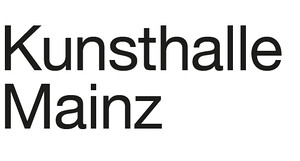October 27, 2023–February 11, 2024
Am Zollhafen 3-5
55118 Mainz
Germany
Hours: Wednesday–Sunday 10am–5pm
T +49 6131 126936
mail@kunsthalle-mainz.de
With: Sammy Baloji, Nilla Banguna, Jackson Bukasa & Dan Kayeye & Justice Kasongo, Sybil Coovi Handemagnon, Fundi Mwamba Gustave & Antje Van Wichelen, Franck Moka, Hadassa Ngamba, Isaac Sahani Dato, Georges Senga, Julia Tröscher
Based on a concept by Lotte Arndt & Sammy Baloji, co-curated by Lotte Arndt, Yasmin Afschar and Marlène Harles, in collaboration with Picha, Lubumbashi, Framer Framed, Amsterdam and Reconnecting “Objects” (Technische Universität Berlin).
In his artistic work Sammy Baloji investigates the history of mining in his home city of Lubumbashi, located in the southeast of the Democratic Republic of Congo. He contrasts the profound destruction of the environment and social structures to the memories and hopes of people in the Katanga region. Key elements of his artistic practice are to encourage collaboration between art producers, activists, and academics as well as bringing together many different kinds of knowledge and production. His invitation to 12 artists in both the Democratic Republic of Congo and in Europe with whom he regularly interacts is a continuation of this development of collective structures that he views as a strategy of resistance to extractivism, an economic model that reduces environments and humans to raw materials that can be dealt with without consideration of the local consequences.
The exhibition unfolds along three thematic skeins that are directly related to Sammy Baloji’s works of recent years as well as his current research. “Expropriation of land & the transformation of earth into raw materials” derives from Baloji’s artistic documentation of the extractive industries in the Katanga region, which turn land into resources and view societies merely as a potential labor pool. Another central role in Baloji’s work is played by his critical enquiry into the colonial archive: beyond the degrading representations and ethnographical assignations it contains, Sammy Baloji searches for traces of the practices and historical experiences that inhabitants of the region devised and passed on through all the radical changes their societies underwent. This “confrontation with the colonial archive and its continuities” comprises the second thematic strand in the exhibition. In a series of works that constitute the third skein, precarious narrative and pictorial legacies are reinterpreted and appropriated. For example, that of the Kasala, an oral poem of the Luba people that celebrates the history of a person, or of a community by combining genealogical and biographical elements with myths and narratives on the cosmic order of the world—“Transmission through Transformation”.
Together, the artists represented in the exhibition continue to develop new forms and cooperations to resist the impact of extractivism. They reinstall interrupted chains of knowledge, shed light on the consequences of global consumer behavior and economic profit maximization, and place people central stage. The polyphonic nature of the exhibition continues the long-standing work of the artists and art producers in the circle around Sammy Baloji to develop collective structures in Lubumbashi. At the heart of this is Picha, the independent center for art and research, a platform populated by Congolese artists that, among other things, organizes the Lubumbashi Biennale. The works on display in Kunsthalle Mainz were developed by the artists in the context of these structures (Picha and the Lubumbashi Biennale) or in collaboration with Framer Framed Amsterdam as well as the research project Reconnecting “Objects” and are being shown in Germany for the first time.
Kunsthalle Mainz would like to thank its partners Picha, Lubumbashi (especially Jean-Sylvain Tshilumba Mukendi and Lucrezia Cippitelli), Framer Framed, Amsterdam, Twenty Nine studio, Brussels, and Reconnecting “Objects” (Technische Universität Berlin). The Reconnecting “Objects” project at TU Berlin is sponsored by the Volkswagen Foundation.
The exhibition in Kunsthalle Mainz is supported by Kultursommer Rheinland-Pfalz, Wallonie-Bruxelles International (WBI), kiosk Vlaanderen, the Bureaux des Arts Plastiques of Institut français & the Kingdom of the Netherlands.



